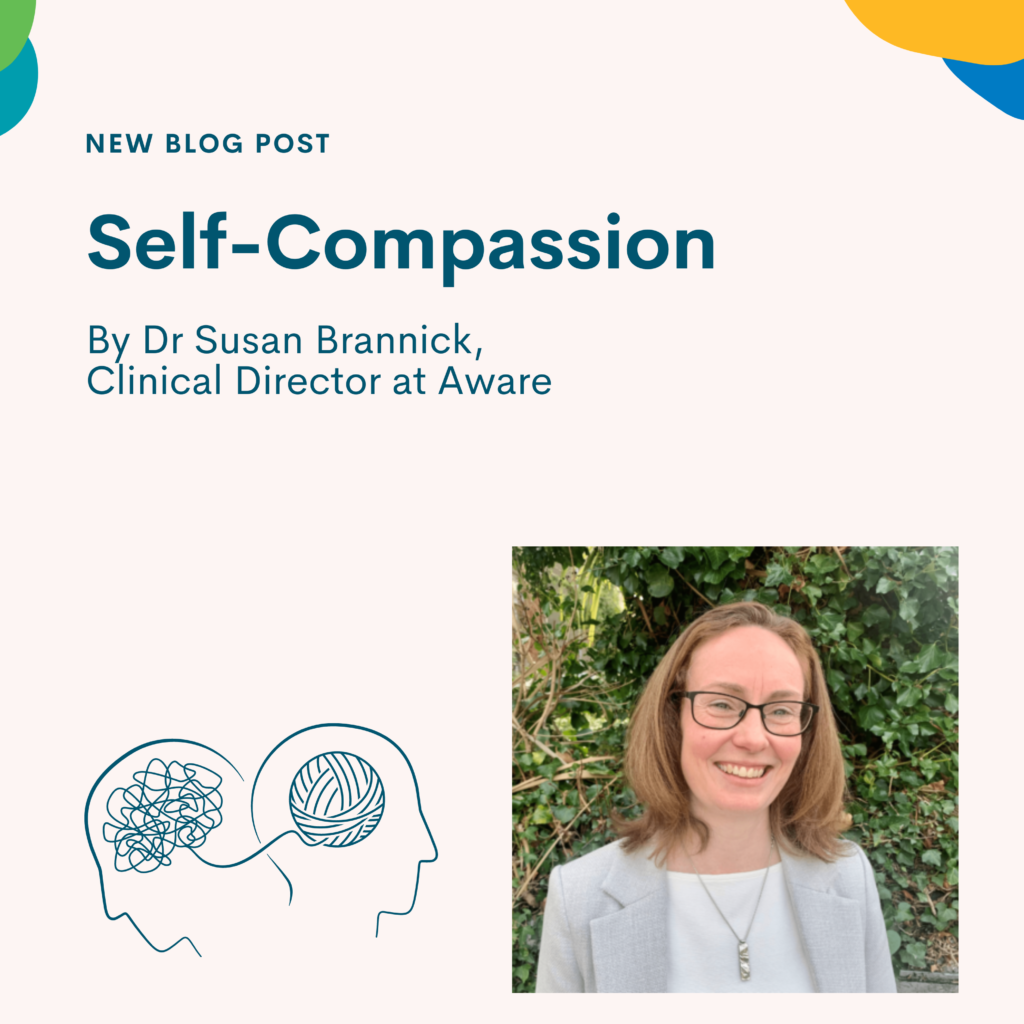
“Self-Compassion is not just a good idea, it is something one can do.”- Kristen Neff, 2023
We were pleased to launch our first journal club for volunteers this August and thanks again to all who came along. Our hope for our regular journal clubs is to offer a relaxed and informal space for social learning and discussion that will have relevance to people’s own Volunteering roles. For our first gathering, we discussed a paper on compassion and how compassion arises in our relationships with others.
What comes through with compassion consistently is that albeit a complex emotional experience, it can be much easier to show compassion for others than for ourselves. The reasons we can be so much harder on ourselves, than our loved ones for instance, are multifaceted and will of course include the influence of our early lives. For instance, early experiences will have contributed to our own individual template of how we talk to ourselves and treat ourselves, as well as family and cultural ideas, often implicit or unspoken aloud, that we will have picked up along the way about what is ‘right’ or ‘helpful’ or indeed ‘necessary’. Having compassion for our own suffering can be trickier than compassion for others, but is also a skill that can be cultivated and is very beneficial for coping with depression and anxiety.
In a recent paper on self-compassion, Kristen Neff outlines the theory and factors of self-compassion and some of the research into how self-compassion can be helpful in mental health difficulties. She defines self-compassion simply as ‘compassion for the experience of suffering turned inward and which can be a productive way of approaching distressing thoughts and emotions that engenders mental and physical well-being’. Neff highlights the importance of the ability to turn toward suffering with kindness and without judgment as central pillars of self-compassion. Turning toward, without getting overwhelmed by suffering, is likely to involve mindfulness, or some kind of intentional awareness to stay present with the distress in the moment.
Neff breaks this down further by operationalising self-compassion as comprising of three overlapping domains. The first relates to how people respond to their own suffering, i.e. kindness rather than judgement. The second relates to their understanding of suffering, i.e. universal rather than isolating. The third relates to how we can pay attention to suffering, e.g. observing with mindfulness rather than becoming overidentified by it. Being overidentified with distress will likely involve believing negative thoughts our mind is generating, as absolute facts, or as Neff puts it, believing transitory events are permanent and definitive. ‘Not only did I make a mistake. I am a mistake.’ Mindfulness can be a way to recognise thoughts and feelings as passing internal events, in order to be less identified or overwhelmed by them. Mindful awareness therefore is a crucial feature of self-compassion.
Neff highlights the exponential rise in research on self-compassion since 2003, with new studies coming out every day. Much of this research uses the self-compassion questionnaire she and colleagues developed, which has been shown through several studies to be a reliable and valid measure of self-compassion.
A consistent finding from the research in this area is that higher rates of self-compassion are linked with lower rates of depression, anxiety, and suicidal thoughts. Equally, a review paper suggested that people experiencing bipolar disorder and generalised anxiety disorder, or substance misuse seemed to have less self-compassion compared with the general population. Self-compassion can help reduce avoidance of negative emotions and can offer a powerful antidote to shame. Shame can underpin many persistent negative emotional states, linked to self-criticism and persistent negative self-talk. One study found that writing a self-compassionate letter to oneself over a 5 day period reduced depression levels for participants for three months.
The idea that self-compassion is weak, self-indulgent or selfish is common, and Neff tackles this head on in this paper, citing several examples of research showing that self-compassion can improve resilience and coping, especially after traumatic events. Self-compassion is associated with increasing healthy behaviours, improved immune system and less cortisol. Neff puts it simply here; When people care about themselves, they will care for themselves, and this leads to greater health. Self-compassion can improve connections with others and has been shown to be very helpful for caregivers, linked with less depression, stress and carer burden. It is also linked to improved motivation.
As this is an emerging field, Neff highlights some of the limitations of current research and potential areas for further exploration. In summary however, there is good evidence to say that self-compassion is a skill that can be learnt and increasing this can help people relate to difficulties in a way that can reduce suffering. For those interested in exploring this further, The Mindful Self Compassion Workbook by Kristen Neff and Christopher Gerner is a nice self help workbook to help develop self-compassion. The Compassionate Mind by Paul Gilbert offers an interesting overview with practical exercises.
This blog is by Dr Susan Brannick, Clinical Director at Aware as part of a monthly blog series.

